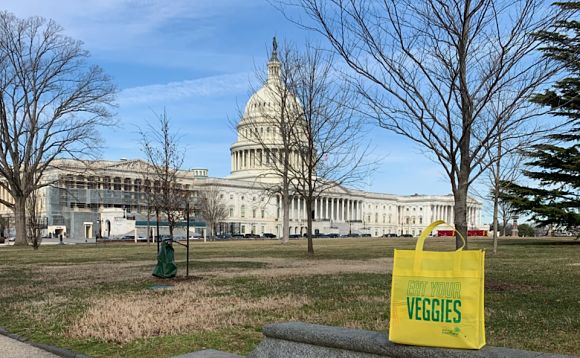Your Voice Holds Power
Get involved with the issues influencing food security
Advocacy is Important to Us
Advocacy is an important part of the work we do at Chester County Food Bank. In addition to the generous food and monetary donations received from our community, we leverage state and federal nutrition programs, to ensure that our neighbors have access to real, healthy food. We strive to educate our community about the importance of these programs and advocate at the state and federal levels to ensure they remain accessible and fully funded.
We advocate for programs that provide the Food Bank with more funds to purchase food or provide our participants more money to purchase food. We partner with Hunger-Free Pennsylvania and Feeding Pennsylvania to advocate for increased funding for state nutrition programs.
Interested in learning more or advocating for the Chester County Food Bank? Email us and let’s work together!

Sign up for our Advocacy Alerts
Join our email list to stay in the know for actions you can take to help our neighbors struggling with food insecurity. Your Voice Matters!
Supplemental Nutrition Assistance Program (SNAP)
Formerly known as food stamps, SNAP helps put food on the table for thousands in Chester County each month by providing money on an Electronic Benefits Transfer (EBT) card for food purchases. CCFB is a proponent of protecting SNAP from funding cuts and harmful policy changes. SNAP benefits are already inadequate for most families to purchase enough food to provide a healthy diet throughout the month.
Our Fresh2You Mobile Market is a SNAP retailer and offers matching dollars in the form of Veggie Bucks for customers shopping with SNAP and WIC/Senior Farmer’s Market Nutrition Program (FMNP) checks.
The SNAP income guidelines are adjusted annually and are valid October 1 – September 30. If you are interested in SNAP, we can help with your application.
The Emergency Food Assistance Program (TEFAP)
TEFAP is a federal program that provides food to states for distribution to local agencies, like food banks. Food Banks, like CCFB, in partnership with their local hunger relief network, such as food cupboards, then get the food to eligible recipients. Recipients of TEFAP food must meet income and household criteria based on 185% of the U.S. poverty level.
State Food Purchase Program (SFPP)
Pennsylvania is one of a small number of states in the nation to provide state revenues for an emergency assistance program for its low-income individuals. SFPP provides cash grants to all 67 counties to support the purchase and distribution of nutritious food and to provide enhanced access to surplus federal food commodities.
Residents of households receiving any of the following may be eligible to receive food provided through SFPP: unemployment compensation, (SNAP) food stamps, cash assistance, medical assistance, or those whose household income is at or below 185% of the U.S. poverty level.
Pennsylvania Agricultural Surplus System (PASS)
PASS helps charitable food providers secure a variety of surplus agricultural products produced in Pennsylvania, creating additional supply to feed those who are at risk of hunger and providing an alternative market for farmers.
Anyone eligible to receive food through food assistance programs operated by the United States Department of Agriculture, such as The Emergency Food Assistance Program (TEFAP), and/or the Pennsylvania Department of Agriculture, such as the State Food Purchase Program (SFPP), is eligible to receive food procured through the PASS program.
Only 6% of our budget is provided through Federal or State funding.
*In accordance with Federal civil rights law and U.S. Department of Agriculture (USDA) civil rights regulations and policies, the USDA, its Agencies, offices, and employees, and institutions participating in or administering USDA programs are prohibited from discriminating based on race, color, national origin, sex, religious creed, disability, age, political beliefs, or reprisal or retaliation for prior civil rights activity in any program or activity conducted or funded by USDA.